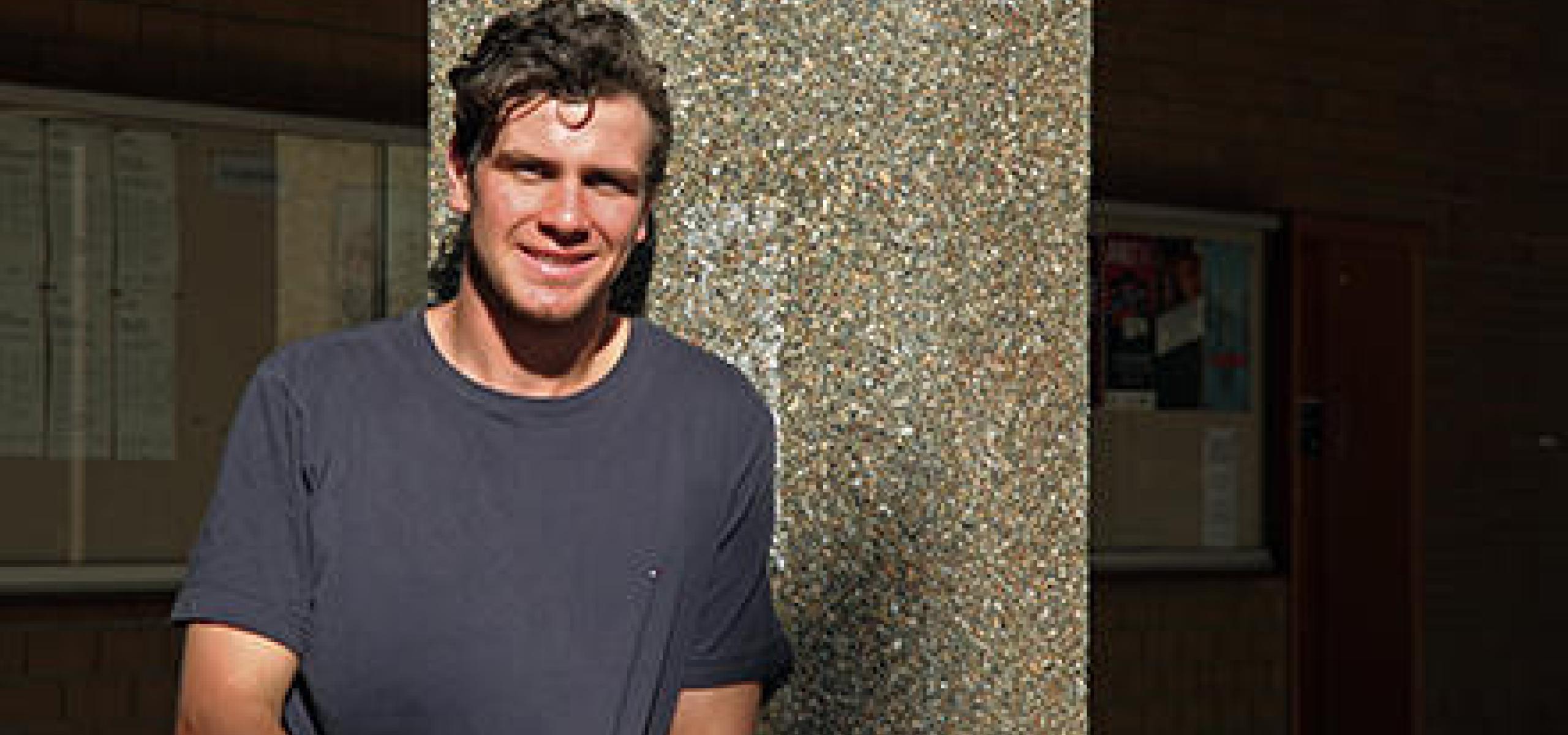
Indigenous Associate Prosecutor and Bachelor of Laws (Hons) student, Kade Alexander.
We all need to come together to stop the injustices that happen to Aboriginal people all the time.
The theme of National Reconciliation Week 2020, #InThisTogether, resonates deeply for Bachelor of Laws (Hons) student Kade Alexander. A Freilich Indigenous Law Student Scholar and Gunai/Kurnai man from regional Victoria, Kade’s commitment to his community has been on display as a volunteer bushfire fighter and advocate for better Indigenous outcomes in the criminal justice system.
In this Q&A, he discusses his work as an Indigenous Associate Prosecutor with the ACT Director of Public Prosecutions (DPP) and what National Reconciliation Week means to him.
1. What inspired you to study law and, in particular, at ANU?
I have wanted to study law since year 10. I was always fascinated with the criminal justice system, and I have always wanted to help people who have made mistakes get the best outcome. I decided to come to ANU after a conversation with Professor Asmi Wood, and it has been the best decision I have ever made.
2. Coming from Bairnsdale, Victoria, how did you find the transition to Canberra in your first year and what made it easier?
The transition was difficult. It is tough being away from my loved ones. It was great to make new friends and also the support that the Tjabal Indigenous Higher Education Centre has given me has been outstanding. I wouldn’t be here if it weren’t for Anne, Asmi, Sam and other members of the Tjabal Centre. They have helped out with employment and ensuring I feel at home.
3. What does your position as Indigenous Associate Prosecutor with the ACT DPP entail?
I am an Associate Prosecutor for all criminal matters that reach the ACT Supreme Court. Our primary role is to instruct in these trials, but day-to-day works include preparing for trials which entails research, proofing, issuing subpoenas and assisting senior counsel with anything they need.
4. The program was set up by Shane Drumgold SC, the first Indigenous DPP in Australia. Has he been a mentor to you personally and, if so, has he offered any advice you’ve found useful?
Shane is great. He is a very busy man, so I don’t interact with him on a day-to-day basis. However, he encouraged me to take this opportunity with both hands.
5. COVID-19 has created challenges for everyone. How have you managed with your work and studies during this period?
It has not been easy. I shouldn't complain, though, as many of my friends have been left without an income, so I am lucky I have been able to work from home during the pandemic.
6. The Gippsland region was severely affected by the Black Summer bushfires. Can you tell us about your experience fighting these bushfires and what led you to get involved?
It was a long summer. I did three and a half months working 7/2 rosters. It wasn't much of a holiday, and I spent my Christmas and New Year’s on the fireline. I was lucky in the fact that my family wasn't impacted.
7. What does National Reconciliation Week mean to you?
I think this year’s theme sums up National Reconciliation Week – we are all 'in this together'. We all need to come together to stop the injustices that happen to Aboriginal people all the time. It also allows me to celebrate some influential Indigenous figures in my life, such as my mum, aunties and uncles and everyone before me who weren't given the same opportunities that I have been given.
8. How would you like to use your degree in future?
I have always said I wanted to be a criminal lawyer. I am loving working at the Office of the Director of Public Prosecutions and in criminal law, but I honestly don’t know where I will end up. I will take any opportunity I get and make the most of it.
9. You mentioned previously that you aim to improve the lives of fellow Aboriginal Australians. What advice would you give others, including non-Indigenous Australians, who also wish to achieve this goal?
Be involved. There are so many great programs that help Indigenous people that are run by non-Indigenous people. For example, the Clontarf Foundation. That foundation in my hometown is doing amazing things for young Indigenous boys going through high school, and the director and assistant are not Indigenous.